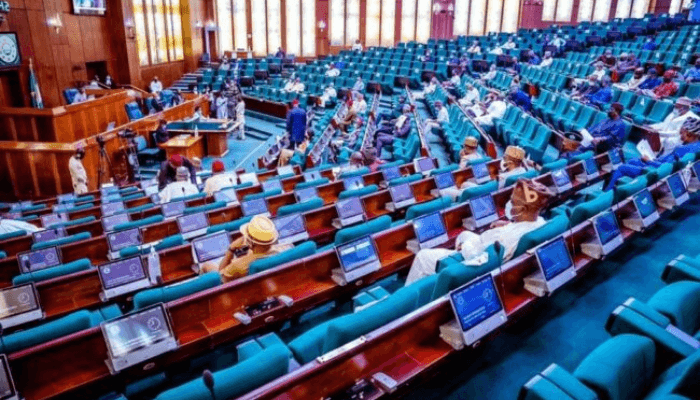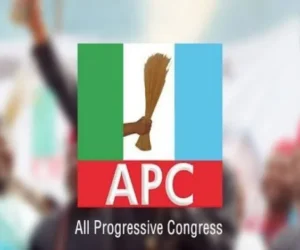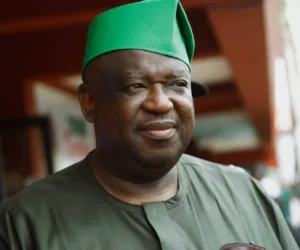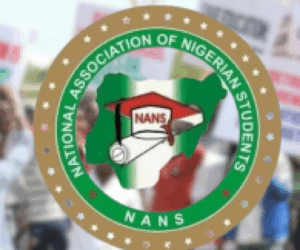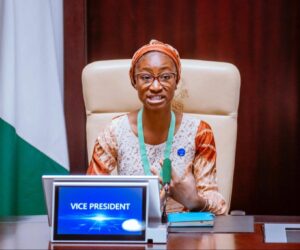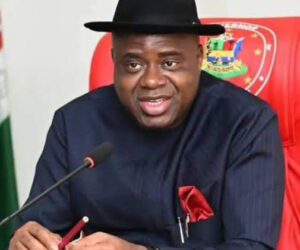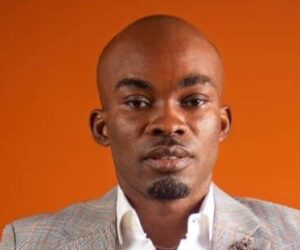The House of Representatives chamber last week Tuesday resembled less of a legislative assembly and more of a marketplace where tempers flared and order collapsed in seconds.
It was another legislative day and lawmakers had set out to debate motions on insecurity and an unusual diplomatic row involving former U.S. President Donald Trump, but ended up at war with one another over who should probe the Lagos International Trade Fair Complex.
The agenda was packed but routine, a motion on renewed criminal activities in parts of Kwara, another seeking to “counter misleading international narratives on religious killings in Nigeria,” pointing to Trump’s recent comments that “Nigeria would face consequences” if it failed to protect Christian minorities.
Read also: Who am I to answer Trump? Akpabio’s comic relief amid US-Nigeria diplomatic tension
But before the House could even get to the foreign policy item, the floor had descended into a row over turf, a turf called the Lagos International Trade Fair Complex. Ademorin Kuye, representing Lagos, had moved a motion of urgent national importance, urging the House to investigate alleged illegal allocations and sale of federal land at the Trade Fair Complex. He recommended that the House Committee on Public Assets handle the probe.
That suggestion lit the fuse. Francis Waive, Chairman of the Committee on Rules and Business, rose immediately. He objected, arguing that the matter belonged squarely to the Committee on Commerce. “Trade fair matters are commercial,” Waive insisted, waving a copy of the Standing Orders as though it were a holy text.
Almost instantly, other lawmakers leapt in, some in support, others in protest. Hon. Yusuf Gagdi, Lawmaker representing Plateau countered that because the complex is federal property, it fell within the jurisdiction of the Public Assets Committee. “Order 109 is clear,” he said, voice rising above the din. “Public Assets oversees ministries and agencies that manage or dispose of government properties. The Lagos Trade Fair is one of such assets”, he added.
Mark Esset, representing Akwa Ibom shot back: “Trade fairs are not public assets being sold; they are commercial entities.”
And with that, the shouting began.
Lawmakers waved documents, pointed fingers, and traded accusations.
At one point, the Deputy Chairman of the Committee on Commerce, James Wubarka (PDP, Taraba), declared that his committee had already conducted two oversight visits to the complex. Reassigning it, he warned, would amount to “stripping the Committee on Commerce of its constitutional powers.”
The suggestion of a joint committee, a compromise floated by Ali Isa, representing Gombe briefly offered a path forward. But the idea died quickly; no seconder, no peace.
As the argument dragged on, lawmakers began shouting over one another, drowning out attempts to introduce new motions. When Mohammed Umar’s motion on renewed criminal activities in Kwara was read, the chamber erupted in loud “nays.” Another motion on alleged religious killings in the country, one that would have addressed Trump’s comments and Nigeria’s worsening reputation abroad met the same fate.
Read also: US lawmaker warns Nigeria against underestimating Trump’s resolve over killings of christians
By now, the Deputy Speaker had lost control. Eventually, the House went into a closed-door executive session, a polite parliamentary phrase for “let’s go fight this out privately.”
When the House finally reconvened, Lawmakers countenance showed they had resolved the issue behind doors, and observers expected the House to revisit the crucial security matter it had rejected.
In a surprising twist, the House instead moved a motion to suspend its plenary session for one week over local contractors protesting non-payment for executed projects at the National Assembly complex.
Lawmakers said the protest has made it difficult for them and their staff to access their offices, and opted to go on break for a whole week, instead of perhaps, addressing the concerns of the grieving contractors.
The House later reversed its decision, and held plenary Wednesday, mostly executive sessions, and began its holiday Thursday.
The implication of this was clear: the much-anticipated debate on Trump’s threats to Nigeria, and the broader issue of international perceptions of religious persecution, was never discussed. Despite its diplomatic weight, and the potential consequences for Nigeria’s global standing, the matter was lost in a tangle of procedural quarrels and personal rivalries.
Beyond the day’s drama, the episode highlights a chronic disunity that has plagued Nigeria’s lower legislative chamber, a pattern where internal rivalries and committee politics routinely derail serious national debates.
The missed opportunity to discuss Trump’s remarks, which many saw as an affront to Nigeria’s sovereignty and religious balance underscores how easily critical foreign policy and security matters can fall through the cracks.
It also raises questions about priorities. With insecurity worsening across the country from kidnappings in the North-West to cult clashes in the South and with Nigeria’s international image under scrutiny, many expected the House to project unity and focus.
Instead, it spent the better part of the week fighting over who should investigate a parcel of land in Lagos.
Read also: UK issues fresh travel advisory over rising insecurity in Nigeria
Observers note that such scenes risk damaging Nigeria’s credibility abroad.
There are also domestic consequences. Each time motions on insecurity are shouted down or postponed, victims of violence in rural communities, those whose lives hinge on government attention — are left waiting. The row over a Lagos asset may have been about oversight, but the real cost was the silencing of national security discussions.

